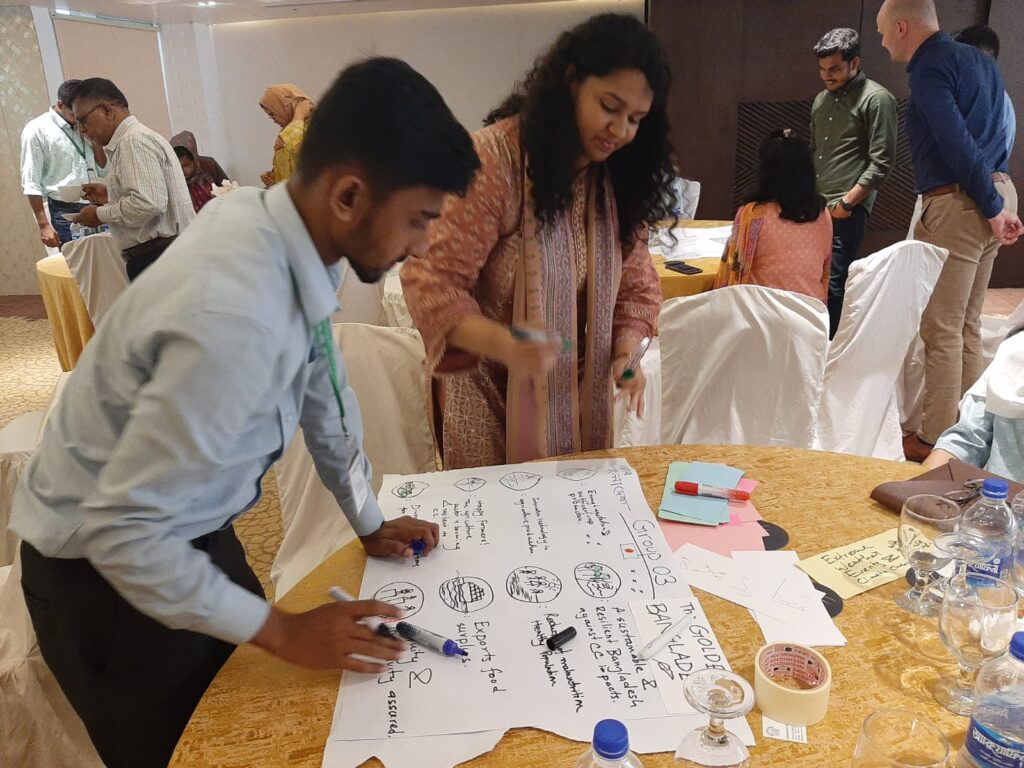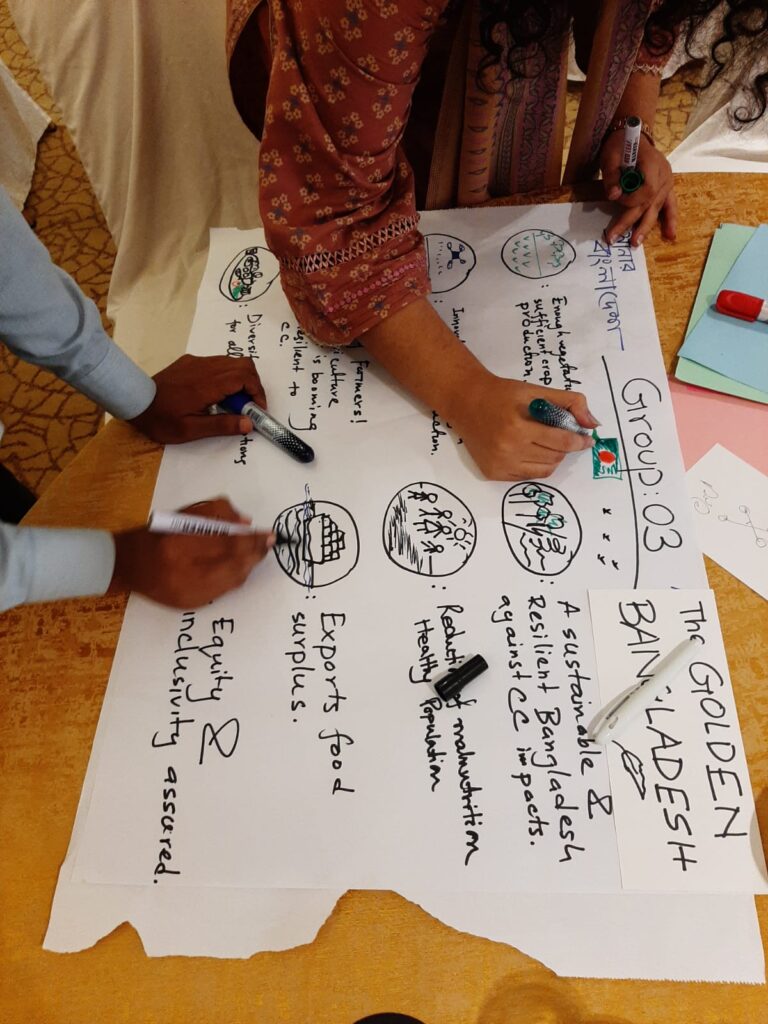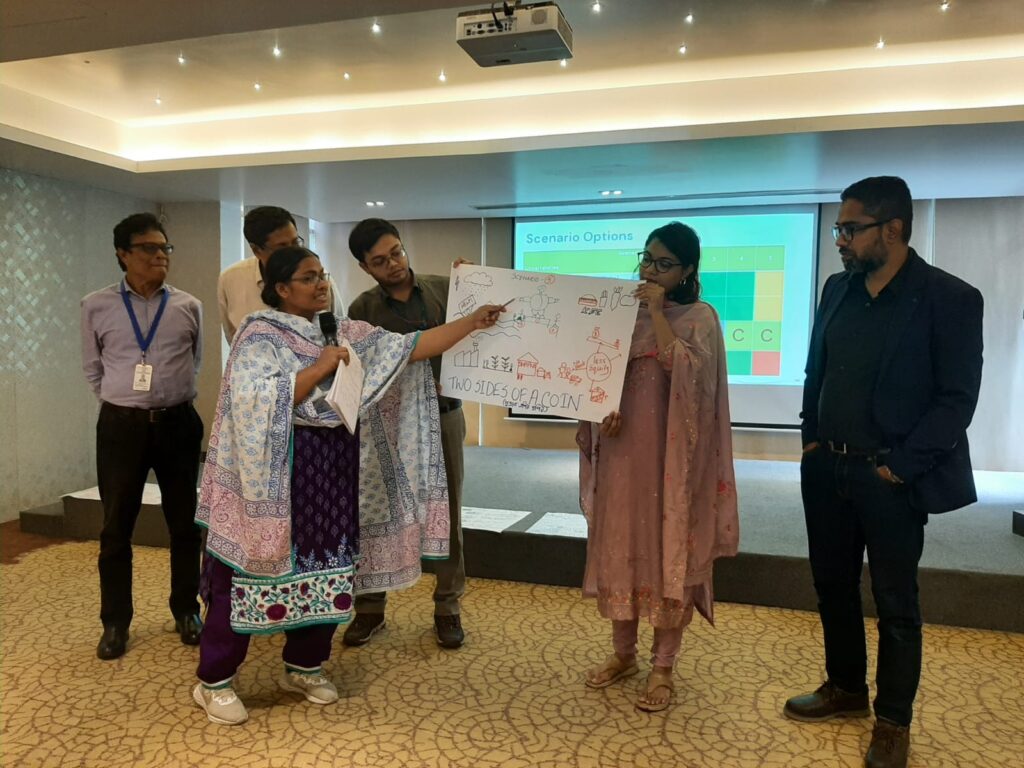Dhaka, June 2024 – Following the 4th Global Foresight4Food Workshop in Savar, Dhaka, the Foresight4Food FoSTr team held an engaging session in Dhaka city to share the final version of the Bangladesh food system map, discuss the country’s key food system bottlenecks, and present the FoSTr/SHiFT modelling work carried out by the Wageningen MAGNET team.
The workshop commenced with a welcome from Jim Woodhill – Lead Foresight4Food Initiative, Mohammad Monirul Hasan – FoSTr Country Advisor, and Mohd. Monirul Islam – Additional Secretary (Attached) (SDG Affairs), Prime Minister’s Office, Government of the People’s Republic of Bangladesh.
Bangladesh Food System Report
The session included sharing the final version of the Bangladesh food system report – a collaborative effort that took place over the last year with FoSTr’s research partners – with the participants. The report offers a comprehensive overview of Bangladesh’s food system, focusing on key trends shaping the food system. The completion of the report was a major milestone as this offers a collective understanding of what the food system is delivering in terms of outcomes, and what sort of activities and drivers shape the system. This is an important step in the foresight process and paves the way for more in-depth foresight and scenario work.
FoSTr research partners then presented policy papers and had rich discussions on the topics of climate resilience, the cost of a healthy diet, land use change, fruit and vegetable production and social protection programs.
Through interactive sessions, participants were engaged in identifying key uncertainties and developing scenarios for the future of Bangladesh’s food system. These scenarios considered various uncertainties such as climate resilience, consumption patterns, business structure, and equity. Five plausible scenarios were constructed using the rich picture method, each reflecting different combinations of these uncertainties. The participants discussed the implications of these scenarios, considering perspectives from farmers to businessmen.



FoSTr/SHiFT modelling work
Thijs de Lange from the Wageningen MAGNET team presented his work on exploring the socio-economic and environmental health impacts of Bangladesh’s dietary transition, using the FoSTr and SHiFT project. Together with his colleagues from WUR, a MAGNET model scenario simulation study for the period of 2022-2040 was conducted. The study found a decrease in staple food consumption over the study period, mainly rice, and an increase in oils and sugar. Animal protein consumption also increased. The study used the MAGNET model to analyse environmental trade-offs between different diet scenarios. The study suggests policy interventions like education campaigns, subsidies on healthy food items, and taxation on environmentally harmful and unhealthy food items are needed.
Mr. Shahidul Alam – FPMU DG, made closing remarks and reflected on the different sessions held during the day. He identified that food security and transformation are essential in Bangladesh yet are affected by various factors such as climate change, population growth, and political conflicts and emphasized the importance of mapping and addressing these uncertainties.
The session ended with several next steps envisioned and discussed for FoSTr:
- Visualizing and writing out in detail the constructed scenarios
- Finalizing the thematic policy papers with today’s input
- Deliver training for the research team on modelling
- Organizing a transformation action plan workshop
- Draft scenario report with policy recommendations